This article was co-authored by Katie Marks-Cogan, MD. Dr. Katie Marks-Cogan is a board certified Pediatric & Adult Allergist at Clear Allergy based in Los Angeles, California. She is the Chief Allergist for Ready, Set, Food!, an infant dietary supplement designed to reduce the risk of childhood food allergies. She received her M.D. with honors from the University of Maryland. She then completed her residency in Internal Medicine at Northwestern University and fellowship in Allergy/Immunology at the University of Pennsylvania and CHOP.
There are 14 references cited in this article, which can be found at the bottom of the page.
This article has been viewed 55,190 times.
Allergic reactions can be caused by a variety of things, from something in the air to something that you eat or drink. Because of the wide range of possible causes, it may feel confusing to try to determine if you or someone you know is having an allergic reaction. Fortunately, you can look for key symptoms that will help you determine if someone is having an allergic reaction, and how serious the reaction is.
Steps
Symptoms of a Serious Allergy
-
1Seek immediate medical attention if you show signs of anaphylaxis. Anaphylaxis is a potentially life-threatening reaction that may occur within a few seconds or minutes after you’re exposed to something you’re allergic to. Signs of anaphylaxis include: swelling of the lips, tongue, or throat, difficulty breathing, wheezing, dizziness, severe stomach pain, and a weak or rapid pulse.[1]
- Anaphylaxis can often occur if you eat something that you’re highly allergic to, such as peanuts or shellfish, so try to take note of what you’ve eaten so you can tell medical personnel.
- If you know you have a certain allergy that you may accidentally be exposed to, keep an epi-pen on you at all times, just to be safe.
EXPERT TIPDr. Katie Marks-Cogan is a board certified Pediatric & Adult Allergist at Clear Allergy based in Los Angeles, California. She is the Chief Allergist for Ready, Set, Food!, an infant dietary supplement designed to reduce the risk of childhood food allergies. She received her M.D. with honors from the University of Maryland. She then completed her residency in Internal Medicine at Northwestern University and fellowship in Allergy/Immunology at the University of Pennsylvania and CHOP.Board Certified Pediatric & Adult Allergist
 Katie Marks-Cogan, MD
Katie Marks-Cogan, MD
Board Certified Pediatric & Adult AllergistAllergies, especially food allergies, can have cofactors. Cofactors mean that the allergic reaction is worse when you introduce something else, like alcohol or Ibuprofen. Alcohol, Ibuprofen, and even exercise can lower your body's threshold for handling the allergen, making your reaction more severe.
-
2Get help for pain or tightness in your chest or abdomen. Heart palpitations, chest pains, and severe abdominal pain are all signs of a serious allergic reaction. If you’re experiencing any of these symptoms, stay calm. You may be experiencing a reaction that could be anaphylaxis. Get immediate treatment to avoid life-threatening symptoms such as anaphylactic shock or a heart attack.[2]
- Focus on your breathing to help calm yourself down and make sure you’re getting enough oxygen.
- If you think you may be having a heart attack, call emergency medical services immediately.
Advertisement -
3Look for severe swelling that needs immediate medical attention. If you have major swelling or irritation in a specific area on your skin, it could be caused by something you came into contact with such as poison ivy, which can be treated with over-the-counter creams. However, if you have severe swelling caused by something like an insect sting or bite, you could have a serious reaction that could be potentially dangerous. Seek immediate medical attention if you do have a severe reaction.[3]
- For instance, the venom from a bee sting can cause a life-threatening allergic reaction in some people.[4]
- Look for a puncture or bite wound that could have been caused by a venomous insect or snake. Get emergency medical treatment if you find a bite wound and are experiencing a severe skin reaction.
-
4Tell someone if you feel dizzy or faint. If you have a serious allergic reaction to something you ingested or inhaled, you could potentially pass out and lose consciousness. If you suddenly start to feel really weak or dizzy, tell someone you’re with or someone around you so they can help you if you do lose consciousness.[5]
- If you know you have a serious allergy, tell the person that you think you may be having an allergic reaction to it so they can tell medical personnel if you lose consciousness.
- If you’re by yourself while you’re having a serious reaction, call emergency services. Tell them where you are and what you think may have caused your reaction so they’re better able to help you if they find you passed out.
-
5Think about what could be causing your reaction. If you know you have certain allergies, think about whether or not you were exposed to them. Consider any of the foods that you’ve eaten or where you were when you started experiencing symptoms. Knowing the potential causes of your reaction may help medical professionals diagnose and treat you.[6]
- Think about any pets or animals that you’ve been around as well.
Digestive Reactions
-
1Think about any food or drinks that you’ve consumed. If you start to experience what you think may be an allergic reaction, take a moment to run through anything you’ve ingested recently. Making a mental list of everything you’ve consumed in the past hour or so can help you figure out what may be causing your symptoms, especially if you know you have a certain food allergy.[7]
- If your symptoms turn serious enough for you to seek medical attention, make sure you tell the medical professionals what you’ve ingested and what you think may be causing your reaction.
- It is possible to develop food allergies later in life. For instance, some people can become allergic to shellfish, despite having eaten them without any problems before.
-
2Look for swelling of your face, eyes, tongue, or throat. Serious allergic reactions to something you ingested can result in major swelling on your face, such as your lips and around your eyes. Your tongue may also swell up, making it difficult to speak normally. Try swallowing to see if it’s difficult. If it is difficult to swallow or breathe, it could be a sign of anaphylaxis. Stay calm and get emergency medical help right away.[8]
- You could also have a reaction to something you came into contact with, such as a bee sting, so check your skin for bites or stings as well.
-
3Pay attention to nausea, vomiting, or diarrhea after you eat. Some discomfort, nausea, or even diarrhea after you eat something could just be a harmless effect of eating food that was maybe too spicy, greasy, or heavy. However, if you experience extreme nausea, vomiting, or diarrhea that won’t go away after a few hours, you may be having a serious gastrointestinal reaction that needs to be checked out by a doctor to make sure it’s not dangerous.[9]
- Nausea, vomiting, or diarrhea could be a sign of a more serious systemic allergic reaction.
- Call your doctor if you’re still experiencing serious symptoms 3 hours after you eat. They may ask you to seek emergency treatment.
-
4Take note if you suddenly feel confused or anxious after eating. A serious allergic reaction can cause a major drop in blood pressure, which can cause you to feel disoriented or extremely anxious. If you suddenly find yourself lost and confused, or your heart is beating fast and you have anxiety, you may be experiencing the onset of a serious reaction. Pay attention for any other potential symptoms that could confirm that you need immediate medical attention.[10]
- Sometimes a serious reaction caused by a food allergy can take time to affect your whole system, and your blood pressure may be affected first, which could cause you to feel anxious and confused, but otherwise normal. Keep an eye out for additional symptoms.
Respiratory Reactions
-
1Clear your throat to see if it feels scratchy or tight. Allergens can affect your entire respiratory system, which includes your sinuses, throat, and in more severe cases, your lungs. A common symptom of a minor respiratory reaction is a tickle or scratchiness in the back of your throat. Try clearing your throat to feel if it’s especially itchy or scratchy. It could mean that you’re reacting to something that you breathed in.[11]
- A mildly itchy throat can usually be treated with over-the-counter allergy medication.
Warning: Anaphylaxis, which is a serious and potentially dangerous allergic reaction, often includes your throat closing up. If your throat is scratchy but seems to be getting worse and making it difficult for you to breathe or swallow, get immediate medical help.
-
2Take a breath through your nose to see if your sinuses are congested. A runny or congested nose is a classic sign of a mild allergic reaction to something in the air such as pollen, dander, or mold. Take a deep breath through your nose to confirm that it’s stuffy or runny. If you have difficulty breathing or tightness in your chest, pay attention to it. If it gets worse, it could be a sign of a more serious reaction.[12]
- Sneezing is also a common sign of a mild allergic reaction.
- Most allergies that affect your sinuses can be treated with over-the-counter allergy medication.
-
3Check to see if your face and eyes are itchy. Breathing in an allergen could cause a mild reaction that causes your face and eyes to feel really itchy. Your eyes may get watery as well. These reactions are minor and can generally be treated with over-the-counter allergy medication.[13]
- Your face can also be itchy from eating something your allergic to as well, so think about anything you’ve recently eaten that could cause a reaction and keep an eye out for additional signs of a food allergy reaction.
- Itchy eyes and itchiness on your face can often be treated with an OTC allergy medication such as Benadryl.
-
4Look up your local allergy forecast to identify potential causes. If you’re having mild allergies, it could be caused by allergens present in the air. Because different allergens are released at different times of the year, go online and look up the current allergy forecast in your area to help identify what allergens are possibly causing your symptoms.[14]
- Knowing which allergens affect you and when they’re present in the air can help you avoid them and deal with the symptoms.
- If you’re in the US, you can visit the national allergy map website at https://www.pollen.com/.
Skin Reactions
-
1Consider potential causes of your skin reaction. Think about any new skincare products or laundry detergents that you’ve tried recently. Try to remember any pets or animals that you were around shortly before having a skin reaction. Make a list of things that may cause an allergic reaction so you can try to avoid them in the future.[15]
Tip: If you’re unsure of what’s causing your reaction, talk to your doctor about getting an allergy test to pinpoint the cause.
-
2Check your skin for itchiness, rashes, or hives. Allergic reactions often will affect your skin, causing flushed and red splotches to appear as well as rashes in areas such as your legs, chest, and abdomen. You may also develop small, raised, itchy bumps called hives. But don’t worry. If you have a rash or hives, you’re likely experiencing a mild allergic reaction that will clear up on its own or with over the counter medication.[16]
- You could have brushed against an allergen such as pollen or dander, which got onto your skin and caused a reaction.
- Skin reactions can be caused by breathing in or eating something that you’re allergic too, as well.
-
3See if your ears or mouth are itchy. A mild, systemic reaction can cause you to feel itchy in all sorts of weird places, including inside your mouth and ears. Though it may seem worrying, if you’ve got an itch on the roof of your mouth, inside your ears, or even on your ears themselves, it’s likely that you’re experiencing a mild allergic reaction.[17]
- Though irritating, a mild allergic reaction that makes your ears and mouth itchy will likely clear up on its own and isn’t too serious.
-
4Notice if your eyes are itchy or watery. If allergens get into your eyes from the surrounding air, they can irritate your eyes and make them feel itchy and swollen. Your body may produce more tears in an effort to get rid of the allergens, so you may also experience watery eyes. Squeeze your eyes shut to see if they feel especially itchy or watery, which could mean you’re having a mild allergic reaction.[18]
- You can have itchy eyes without any wateriness or vice versa. You don’t have to have both symptoms to suspect that you’re having a reaction.
- Your face and eyes can also feel itchy from an allergic reaction to something that you eat or breathe in as well.
-
5Wash the affected area with mild soap and water. Many allergic reactions on your skin are caused by exposure to an irritating substance. Washing your skin with soap and water where you’re having a reaction will help remove the irritating substance, which will keep your symptoms from getting worse.[19]
- Washing your skin with warm water will also soothe it and make you feel a little better.
-
6Treat itchy skin with hydrocortisone cream. If your skin is really itchy from an allergic reaction, topical steroids will help treat your symptoms and help you keep from scratching the area, which can damage your skin and potentially cause an infection. Most topical steroids can be purchased over-the-counter at your local pharmacy.[20]
- Your doctor can also prescribe you a stronger topical steroid if you can’t treat your symptoms with OTC cream.
Warnings
- Serious allergic reactions need immediate medical attention. If you think you may be experiencing one, get to an emergency room as soon as possible.⧼thumbs_response⧽
- Have a friend or family member drive you to an emergency room if you’re having a serious allergic reaction. Don’t drive if you feel dizzy or faint.⧼thumbs_response⧽
References
- ↑ https://pubmed.ncbi.nlm.nih.gov/29732976/
- ↑ https://www.jacionline.org/article/S0091-6749(04)01398-3/fulltext
- ↑ https://pubmed.ncbi.nlm.nih.gov/20672788/
- ↑ https://pubmed.ncbi.nlm.nih.gov/28105558/
- ↑ https://www.jacionline.org/article/S0091-6749(04)01398-3/fulltext
- ↑ https://pubmed.ncbi.nlm.nih.gov/20176258/
- ↑ https://pubmed.ncbi.nlm.nih.gov/21134576/?from_term=food+allergy+diagnosis&from_pos=4
- ↑ https://www.jacionline.org/article/S0091-6749(04)01398-3/fulltext
- ↑ https://www.jacionline.org/article/S0091-6749(04)01398-3/fulltext
- ↑ https://www.jacionline.org/article/S0091-6749(04)01398-3/fulltext
- ↑ https://pubmed.ncbi.nlm.nih.gov/11381672/
- ↑ https://pubmed.ncbi.nlm.nih.gov/25644617/
- ↑ https://pubmed.ncbi.nlm.nih.gov/18426137/
- ↑ https://www.pollen.com/
- ↑ https://pubmed.ncbi.nlm.nih.gov/20672788/?from_term=poison+ivy+reaction&from_pos=1
- ↑ https://pubmed.ncbi.nlm.nih.gov/28671445/
- ↑ https://pubmed.ncbi.nlm.nih.gov/22541408/
- ↑ https://pubmed.ncbi.nlm.nih.gov/29626629/
- ↑ https://pubmed.ncbi.nlm.nih.gov/20672788/
- ↑ https://pubmed.ncbi.nlm.nih.gov/20672788/
About This Article
Signs of an allergic reaction can vary widely depending on the type of allergy. Symptoms of a serious allergic reaction that requires immediate medical attention can include swelling of the lips, tongue, or throat, difficulty breathing, wheezing, dizziness, severe stomach pain, a weak or rapid pulse, tightness in the chest or abdomen, and severe swelling. Get immediate medical attention if you're experiencing any of these symptoms. Allergies can cause more minor symptoms too, like itching, sinus congestion, and watery eyes. If you think you may be allergic to something, make sure you talk to your doctor. To learn about other common allergy symptoms, read the full article below.
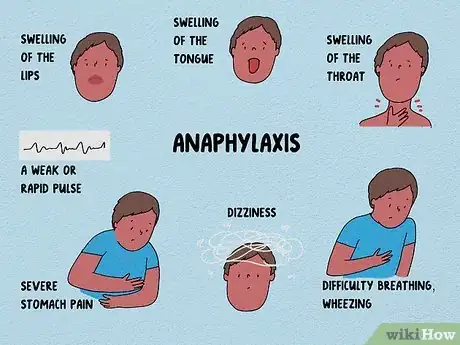
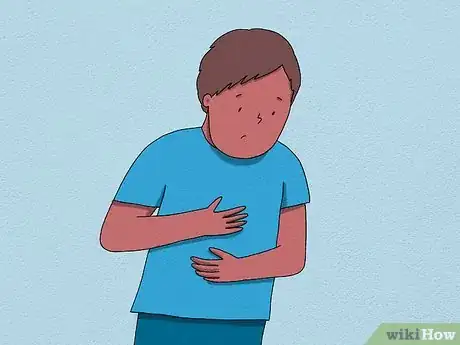

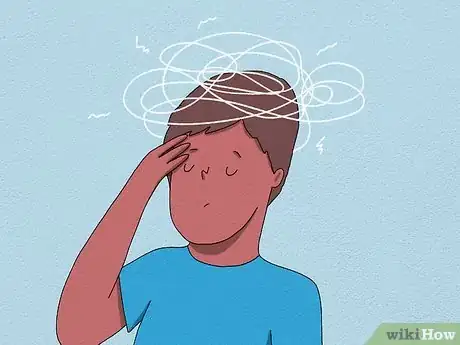
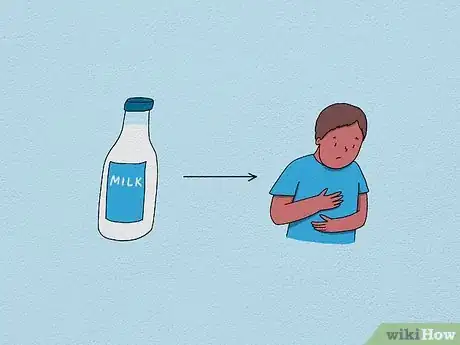












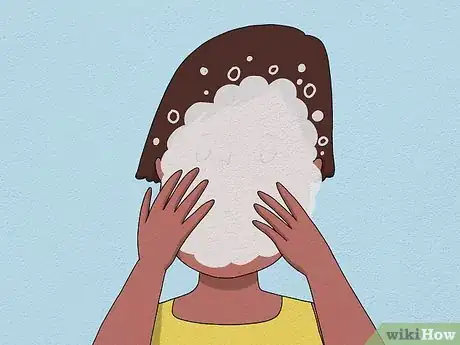
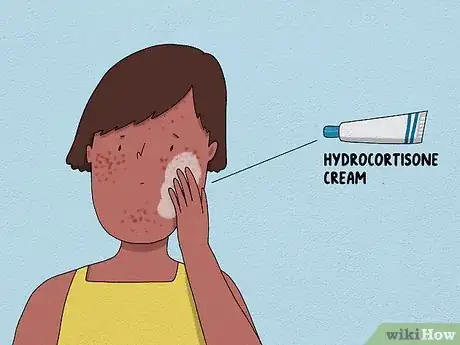
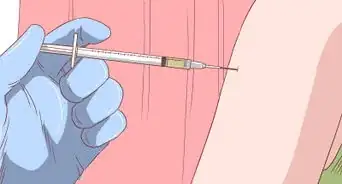
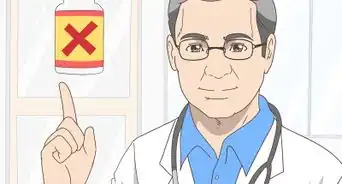



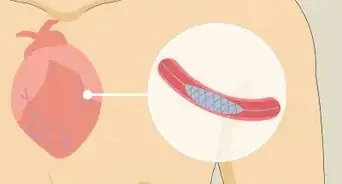
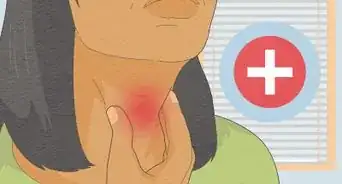


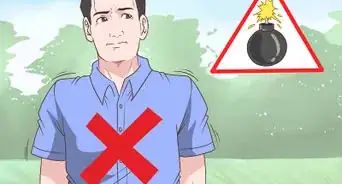
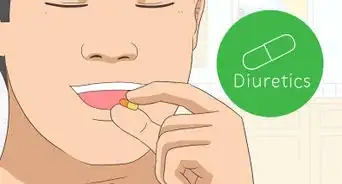








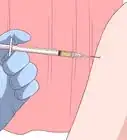
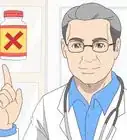





































Medical Disclaimer
The content of this article is not intended to be a substitute for professional medical advice, examination, diagnosis, or treatment. You should always contact your doctor or other qualified healthcare professional before starting, changing, or stopping any kind of health treatment.
Read More...